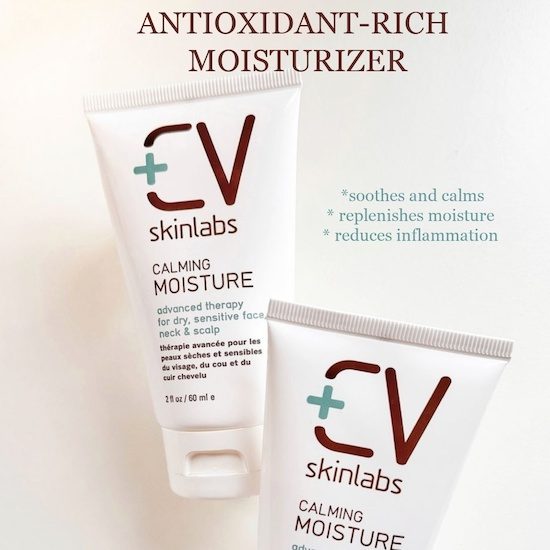Alcohol, aldehydes and skin: not a good combination!
We’re quickly entering the holiday season, which means you may soon be consuming more alcoholic beverages. You may also be unknowingly applying alcohol to your skin through your skin care products.
Whether you ingest it or apply it, alcohol can be harmful to your skin. In this article, we’ll explore why that damage occurs and give you some tips to keep your complexion looking fresh and youthful this holiday season.
Alcohol, aldehydes and skin: what are we talking about?
Alcohol is an organic compound characterized by one or more hydroxyl groups (-OH) bonded to a carbon atom. That’s the chemical explanation, and in chemistry alcohols come in many forms. In everyday life, “alcohol” usually refers to “ethanol,” the type found in drinks like beer, wine, and spirits.
Ethanol depresses the central nervous system and has psychoactive effects, which can alter mood and behavior.
In skin care products, ‘alcohol’ can refer to several different types, which we discuss below.
Aldehydes are organic compounds characterized by a carbonyl group bonded to a hydrogen atom. In simpler terms, they are chemical compounds that occur naturally in the body, in food and in the environment. They come in different forms and can be beneficial or harmful to the skin.
When you consume alcoholic beverages, the liver breaks them down into a type of aldehyde called acetaldehyde. This is a toxic substance that is partly responsible for the unpleasant effects of excessive alcohol consumption, such as a hangover, and for the long-term damage that alcohol can cause to the liver and other organs. It can also cause skin problems, from flushing to redness and long-term inflammation.
Skin care products sometimes use certain aldehydes, such as formaldehyde, as a preservative to prevent bacterial contamination. However, exposure to aldehydes can cause irritation and sensitivity and result in the following symptoms:
- Redness
- Inflammation
- Irritation
- Comments
- Rash
- Flare-ups of eczema, rosacea and psoriasis
Photo by Nadin Sh via Pexels.
Alcohol, aldehydes and skin: how alcohol consumption affects the skin
Drinking alcohol is not good for your skin. It can cause several negative benefits, as we have mentioned here. Although a drink here and there won’t do much harm, the more you drink, the greater the effect.
Dehydration and dullness
Alcohol is a diuretic, which means your body loses fluid. This draws moisture away from your skin, making it look dry, dull and matte.
Premature aging
Long-term alcohol use can accelerate the aging process of the skin. It can also lower vitamin A levels, leading to premature fine lines and wrinkles, as well as sagging skin.
Inflammation and redness
You may have experienced the flushing that can occur after drinking alcohol. It causes your blood vessels to dilate, leading to visible redness and puffiness in the skin. If you have rosacea, alcohol can make symptoms worse.
Skin conditions
Regular alcohol use can increase the risk of developing certain skin conditions, including psoriasis and dermatitis. The presence of acetaldehyde – a byproduct of alcohol metabolism – can cause inflammatory reactions, worsen acne and aggravate other skin conditions.
How much alcohol do you have to drink to see negative effects?
One person’s ability to tolerate alcohol is likely different from another’s. However, we know that even moderate drinking can affect skin health.
Drink moderately
Moderate drinking is defined as one drink per day for women and two for men. (Women’s bodies process alcohol differently.) This level of drinking can lead to dehydration and inflammation. If ingestion is incidental, it is not likely to lead to skin problems in the long term. But your skin can look dull and lifeless.
Drinking heavily
Heavy drinking is defined as drinking more than three drinks per day. It can lead to more noticeable signs of dryness, inflammation and redness, while accelerating skin aging and worsening skin conditions.
Alcohol, Aldehydes and Skin: What About Alcohol in Skin Care?
Not all alcohols in skin care products are harmful. However, certain types can damage the outer skin barrier, leading to irritation, dryness and breakouts. Some of the most common drying alcohols in skin care include the following.
Ethanol
Often used as a solvent or preservative in skin care – and a common ingredient in toners and hand sanitizers – it can be excessively drying, leading to a damaged outer barrier and increased sensitivity.
Isopropyl alcohol
Also known as rubbing alcohol, this is also a harsh alcohol for the skin and can also be found in toners and hand sanitizers. It is sometimes used in products for oily and acne-prone skin, but prolonged use can strip the skin of its natural oils, causing increased oil production and potentially leading to more breakouts.
Denatured alcohol (Alcohol Denat.)
This is often added to make products feel lighter on the skin or to have an astringent effect. It can cause dryness, irritation and long-term damage to the skin barrier, especially in sensitive or dry skin types.
It is best to avoid this type of alcohol when purchasing your skin care products.
Alcohol, aldehydes and skin: what are the useful alcohols?
Some alcohols, known as fatty alcohols, do not harm the skin and may even provide some benefits.
Cetearyl alcohol
This type is a combination of cetyl and stearyl alcohols and is often used in skin care products as an emollient and thickener. It helps create a smoother, more moisturizing product. However, it is inferior to real moisturizers, such as shea butter, natural oils and glycerin.
Cetyl alcohol
Often derived from coconut or palm oil, this is a gentle fatty alcohol that helps hydrate and protect the skin.
Stearyl alcohol
Another fatty alcohol, this one helps the moisturizer lock in.
These alcohols won’t dry out or damage your skin, but they are cheap moisturizers. At CV Skinlabs, we create formulas rich in real moisturizers, natural oils, triglycerides and extracts that better benefit your skin.

Alcohol, aldehydes and skin: how to protect against damage
The good news is that you have complete control over how much alcohol you consume or use on your skin. Here are some tips to limit the damage.
Limit alcohol consumption
Drinking a cocktail or beer every now and then won’t harm your skin, but the more you can limit your intake, the more youthful your skin will appear.
Read the labels carefully
Be aware of harmful alcohols in your products. Choose the ones that use moisturizing alcohols, or better yet, those that use real moisturizing ingredients, like those in our CV Skinlabs products.
Provide hydration
Drink plenty of water and use moisturizing skin care products that contain glycerin, ceramides and natural oils – such as those in CV Skinlabs products – to support the skin’s moisture barrier.
Reduce inflammation
Alcohol increases inflammation in the body and skin. You can control inflammation by eating more fruits and vegetables and moisturizing your skin regularly with our antioxidant-rich Calming Moisture and Body Repair Lotion. Not only do they help keep the outer barrier intact to retain moisture, but they also contain ingredients that naturally reduce inflammation.
Use antioxidants
In both your diet and your skin care, antioxidants such as vitamin C, vitamin E and niacinamide help fight free radicals and reduce the impact of alcohol-related aldehydes on the skin.
Be gentle with your skin
Choose alcohol-free cleansers and moisturizers, especially if you have dry or sensitive skin. Products labeled “alcohol-free” are usually best for maintaining the skin’s outer barrier.
Do you avoid alcohol for the sake of your skin?
Featured image by Andrea Piacquadio via Pexels.





